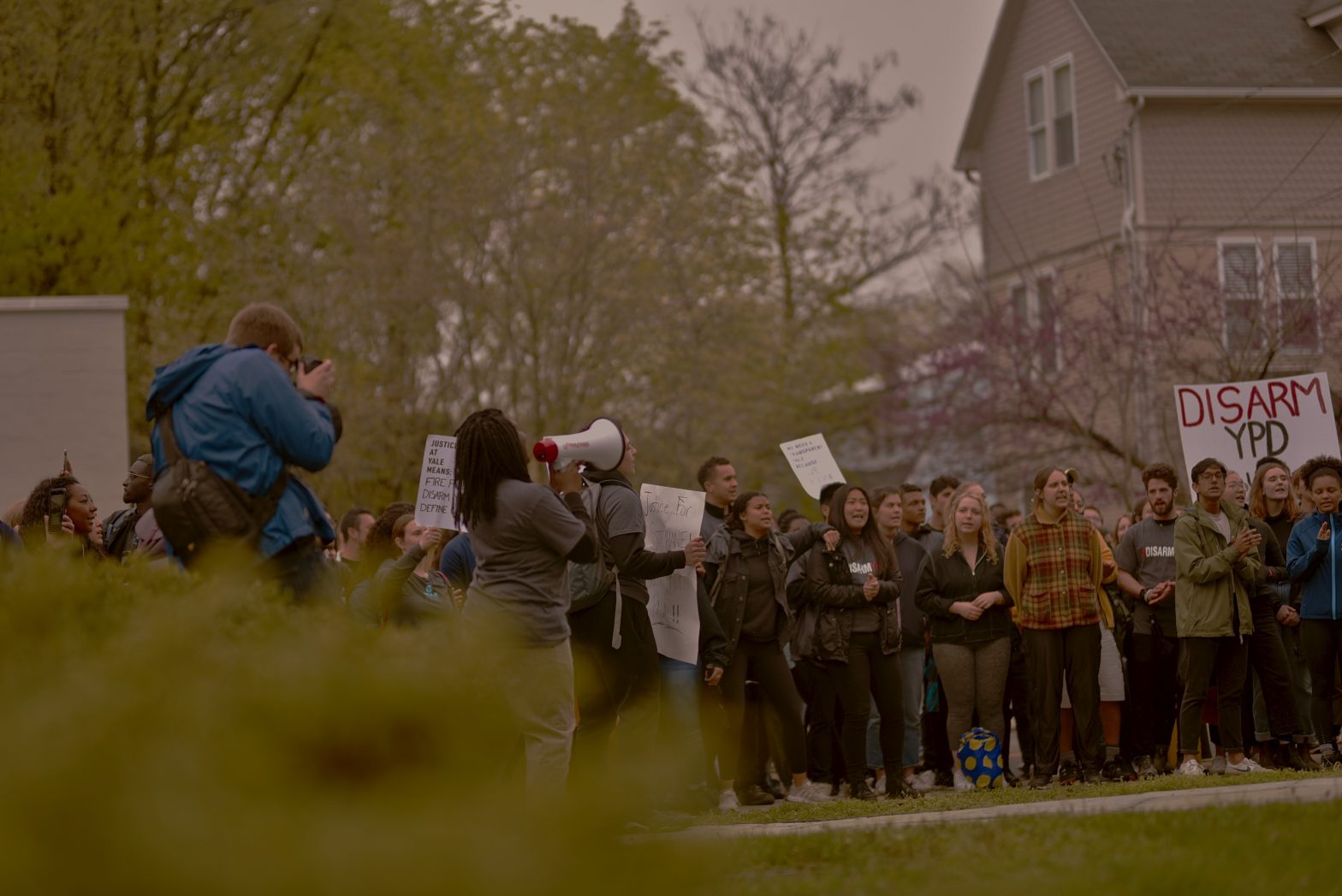Photo Courtesy of Sydney Holmes
My mother taught me to expect the best from people, and I’d like to think I’ve done so throughout the years. From playground disputes to points of national shame, I’ve always taken a second to pause and view ideas, situations, and people like prisms. As dozens of colorful interpretations emerge from a single set of facts, I try my best to understand each hue.
My mother also taught me that Black people aren’t offered a similar rationality in this nation. As a family of Sierra Leoneans, it did not matter that our ancestors were fortunate enough to escape the white man’s grasp; being born in this stolen land irreversibly tied us to an American legacy of Blackness.
Sometimes, understanding this tie meant small things like learning your “white voice.” Other times it meant more enjoyable things like the universal melanin nod of acknowledgment. When you turn sixteen however, this tie expands for our ebony bunch. You enter adulthood and become a national target. This means that when he pulls you over, you only know three phrases: “yes sir,” “no sir,” and “thank you sir.” It means your hands remain at ten o’clock and two o’clock, because to step away from the script is to give another white man an excuse to fire it all away.
Still, sometimes even that isn’t enough.
As much as my mother has embossed these lessons in the canvas of my skin, I’ve maintained hope that, if you say the right thing, people will do the right thing in turn. I guess you could say her lessons have always been at odds with me. Though I realize I won’t be offered the same generosity as my white peers, I still come to the table ready to “go high.”
The Hamden Police Commission, however, reminds me of the danger in this mindset.
***
Around 4:20 a.m. on April 16, 2019, Hamden Police Department officer Devon Eaton and Yale Police Department officer Terrance Pollack opened fire on an unarmed Black man, Paul Witherspoon, and Black woman, Stephanie Washington. The police fired 16 shots into the vehicle.
While a state attorney’s investigation raised felony charges against officer Eaton, the Hamden Police Commision has yet to address the shooting in their monthly agenda. It’s been over six months.
On Wednesday, November 13th, I joined a coalition of Yale students, Hamden and New Haven residents, and community organizers to protest this inaction at the monthly Commission meeting. In an act of civil disobedience, we used the agenda’s space for public commentary to air our grievances. In these moments, I couldn’t help but think of my mother’s lesson: Black people aren’t offered a similar rationality. In this case, we weren’t even offered an acknowledgement.
What I saw that Wednesday was the face of institutional racism, for the men and women of the Hamden Police Commission embodied the malignant and systemic cancer without saying a word. Their six months of inaction filled the silence.
We talk about institutional racism a lot at Yale, but do so in a manner that distances our prestigious classrooms from the issue. We so far intellectualize the problem that it becomes hard to remember that people make institutions what they are. In saying all this, I don’t want to be pompous, because I, too, am drinking the Kool-Aid. I, too, use buzzwords, and at times, I, too, forget that flesh and blood constitute and perpetuate “the system.”
As I sat in my chair at the Commission meeting, I tried to rationalize how the shootings of Stephanie Washington and Paul Witherspoon went undiscussed. I shined the prism’s light on my palms and attempted to understand the refracted tints to the fullest extent possible. Was it because nobody died? It couldn’t be. Officer Eaton wrote 16 demanding prescriptions for death on April 16, and if just one had taken a different trajectory, we would be calling him a murderer. Maybe it was the city’s overly bureaucratic structure? Maybe the commission wanted all relevant investigations to conclude as a matter of talking about it responsibly… but for six months? Not one, not two, not three, not four, not five, but six. The Police Commission went over four thousand hours without even a conversation? No, it couldn’t be that, either.
I then thought back to my mother’s advice, and in turn, remembered that there are times where simply being Black strips you of your humanity in this country. No matter how I tried to digest the Commission’s failure of both duty and humanity, the meeting was, beyond the shadow of a doubt, a failure. Six months was too long.
***
On Tuesday, November 19, Hamden Police Chief John Cappiello recommended the termination of officer Eaton. As someone who sat in the room a number of Wednesdays ago, I can tell you that his much-awaited decision was a result of public outcry. We took a stand—forcing Commission members to recognize that our movement is too driven by individuals; by flesh and blood.
This miniscule step towards justice is a reminder of the power of protest. And so, when this same stock of injustice inevitably resurfaces, and the next round of hashtags flood social media, I invite you to leave your classrooms and join the fight. At the very least, it’ll be an awakening.
#justiceforstephanieandpaul

